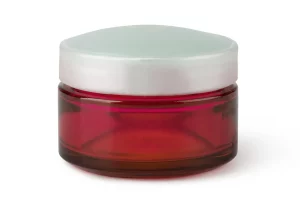Upper urinary tract infections, commonly known as UTIs, are among the most common bacterial infections. They occur when bacteria enter and infect the bladder or urethra, leading to intense pain in these areas. Although receiving medical care is essential for treating UTI symptoms, many people wonder if a UTI can go away independently without any medical treatment. This article answers the question, ‘can a UTI go away on its own?’ and provides more information on prevention, symptoms, treatment options, and more.
How long does a UTI last when untreated?
A UTI can last for several days to weeks if left untreated, according to the National Institutes of Health (NIH).
However, the longer these infections remain in the body, the more symptoms one might experience and potentially worsen with permanent tissue damage.
Therefore, seeking medical attention immediately after experiencing any signs or symptoms that could indicate an infection is essential.
In addition, untreated UTIs can increase a patient’s risk of developing serious diseases such as kidney inflammation or sepsis.
Can a UTI go away on its own without antibiotics?
Some UTIs can ease away on their own without antibiotics; however, this depends on the individual and many factors.
Research suggests that lower UTIs, such as bladder or urethra infections, can sometimes clear up within a few days without medical intervention.
However, untreated upper UTIs may require antibiotic treatment to prevent them from spreading and causing further damage.
Any underlying health conditions of the patient can also determine if or how fast a UTI can go away on its own because some conditions may require immediate medical attention before the symptoms ease.
In general, taking an appropriate course of action at home by drinking plenty of fluids and maintaining good personal care habits such as regular urination and proper hygiene practices may reduce the duration of UTIs to last two weeks before patients begin feeling better or start noticing improvement in their symptoms.
Therefore, how well you manage your condition holistically can determine how long it will take for the infection to ease independently without any direct medical intervention.
Can a UTI go away on its own, and how do I know it’s serious?
If you worry that a UTI is severe, there are certain warning signs you should pay attention to.
The most common symptom of a UTI is burning pain and an urgent need to urinate when passing urine.
Other Symptoms
Other possible symptoms include:
- Lower abdominal discomfort or pressure;
- Cloudy or bloody urine;
- Feeling tired;
- Fever or chills,
- Nausea,
- Vomiting
- Urinary incontinence
- Flank pain – the pain one may feel in their side just above the hips.
Although these symptoms may indicate a more severe case of UTI requiring medical care and treatment, not everyone with these symptoms has a bacterial infection.
Read Also: Can You Have Sex With a UTI?
When to see a doctor
It is also essential to remember that different cases require different levels of care, so seeking medical advice from your doctor will ensure proper diagnosis and treatment for whatever underlying cause may be causing the UTI-like symptoms.
In addition, visiting your healthcare expert early on can help identify any potential complications associated with untreated urinary infections quicker so that they can be treated before they become more severe or lead to further health issues.
How can I get rid of my UTI without antibiotics?
There are several options that can ease a patient’s infection without the use of antibiotics. Some of these options are listed below.
Fluids
Drinking lots of fluids is one of the first steps to treating a UTI without antibiotics. If you drink plenty of water, tea, and other clear liquids like broth or juice, they can help flush out your urinary system.
This is particularly helpful in eliminating infectious bacteria and making it difficult for them to multiply quickly in your bladder or urethra.
Herbal Tea
Some herbal teas, such as chamomile, have antibacterial properties that may reduce inflammation associated with UTIs caused by viruses or fungi.
Buying over-the-counter remedies like AZO Urinary Pain Relief tablets may also relieve pain and burning sensations associated with a UTI; however, as there are no antibiotics in these medications, they cannot directly cure an infection, they can improve symptoms while you wait for antibiotic UTI treatment if necessary.
Vitamin C-rich Foods
Vitamin C-rich foods (such as oranges or strawberries) increase acidity levels in urine, potentially hindering bacterial growth and alleviating symptoms related to UTI infections due to their ability to quickly break down bacteria cell walls.
Good Hygiene
Finally, practicing good hygiene habits should not be forgotten when trying to get rid of a UTI without antibiotics; this includes the following:
Carefully wash the genital area multiple times daily with soap and warm water
Avoiding any products that might irritate the site, such as scented soaps and bubble baths
Wearing cotton underwear rather than synthetic materials
Wiping from front to back after toilet use
Urinating after sexual intercourse means each time our sugars/carb
Ways to treat UTIs without antibiotics
A UTI can heal on its own; however, medical intervention may be necessary depending on the severity of the infection.
Depending upon the patient’s age, overall health, and lifestyle factors, some doctors might advise waiting up to three days before starting antibiotics.
This could allow time for natural healing processes in some cases.
If medical treatment is not sought, adequate hydration can go a long way toward helping reduce uncomfortable symptoms associated with UTIs and bladder infections.
Drinking plenty of fluids helps flush irritants out of the urinary tract so that they do not cause further discomfort or exacerbate existing symptoms.
Caffeine, as well as alcohol, should be avoided when attempting to treat a UTI, and any highly processed or spicy foods should also be limited during this period.
Cranberry contains compounds that are thought to help prevent bacteria from adhering themselves along bladder walls.
It has been linked to relief from common UTI-related discomforts such as burning sensations while urinating or pain in the lower abdominal region if taken regularly.
Drinking juice made from cranberry throughout your healing process can provide much-needed comfort from the UTI. This juice is also known to prevent urinary tract infections.
Additionally, specific home remedies like eating foods containing high amounts of antioxidants, such as acais bowls and blueberries, have anti-inflammatory properties that can prevent UTIs and ease their symptoms, if required.
Using a moderate heating pad around your tummy can provide temporary relief too.
What makes a UTI worse?
When a UTI is not treated, several factors can worsen your symptoms.
First and foremost, allowing bacteria to accumulate within the urinary tract gives it more time and opportunity to replicate and spread throughout.
Furthermore, it could cause a severe kidney infection if the bacteria reach this organ through the bloodstream or urine flow.
Even though UTIs come with an intense burning sensation during urination, holding your urine in can worsen the infection.
It is also crucial to note that birth control pills are not a source of recurrent infections.
What happens if you ignore a UTI?
If a UTI is not treated immediately, the bacteria causing it may spread to the kidneys and cause even more severe health problems.
This can lead to painful abdominal cramps, fever, unusual urination, nausea, and vomiting.
Furthermore, an untreated UTI increases your risk factors of developing chronic infections in the bladder or urethra that can be difficult to cure.
Some of the symptoms include the following:
- Frequent urination;
- Pain during urination;
- Pelvic pain;
- Fever or chills
- Back pain
- Cloudy, foul-smelling urine
You must seek immediate medical help if you experience any of these UTI symptoms.
Moreover, suppose you decide to ignore symptoms associated with a UTI. In that case, there can also be other long-term consequences, including weakened immunity which makes it easier for bacteria to thrive in the body, allowing recurrent episodes of infection in this area and even sepsis (an extreme case).
Additionally, expecting mothers with untreated UTIs have an increased risk of birthing babies with brain damage due to toxemia.
This happens due to insufficient oxygen supply to the fetus through the placenta caused by inflammation in the uterus area.
Frequently Asked Questions (FAQs)
Yes, there are some home remedies that patients can apply to ease the symptoms of a UTI, and ultimately cure the infection.
Fortunately, there are several remedies to get rid of a UTI that you can try at home.
First and foremost, it is essential to follow a strict hygiene regimen to reduce the risk of developing or worsening infections.
Proper handwashing must be done regularly throughout the day to prevent bacteria from entering the bladder area.
Additionally, urinating after intercourse can help flush out any lingering stray germs that may have become lodged within the urinary tract during sexual activity.
Second, drinking lots of water and other fluids, such as cranberry juice, can also be beneficial when aiming for an immediate resolution of symptoms associated with a UTI; this works by helping keep the urinary system flushed out while simultaneously providing relief from pain or discomfort due to bacterial infections residing in the affected areas.
Finally, taking over-the-counter medications such as ibuprofen or acetaminophen can provide significant relief from acute symptoms while pursuing effective treatment options prescribed by your doctor.
Applying easy home remedies provides an option for patients to get relief from the symptoms of the infection; however, consulting with a doctor should always be considered for a more holistic approach to treatment.
Can a UTI go away on its own without any medical intervention? UTIs can resolve independently without medical attention.
However, it is vital always to get your doctor involved if you notice tell-tale signs of an infection.
This is because untreated UTIs can lead to long-term health problems and complications, such as kidney infections or bladder cancer.
However, there are some steps that patients can take to help with the discomfort associated with UTIs until they can seek professional medical attention.
The first step towards treating a urinary tract infection at home includes drinking plenty of fluids, especially water.
This helps flush out bacteria from the system and may alleviate symptoms caused by the infection, such as painful urination or increased frequency of urination.
Additionally, cranberry juice is often recommended due to its natural acidity, which notably neutralizes microorganisms in urine, slowing down bacterial growth; however, more research must be done before confirming this remedy’s efficiency in preventing or curing UTIs.
Patients can also take over-the-counter medications like ibuprofen or acetaminophen to relieve the symptoms of a UTI.
For urinary tract infections (UTIs), the most crucial action is to consult your doctor immediately for them to diagnose and treat your condition.
If not treated promptly, UTIs can spread up the urethra and into other organs throughout the body, which could lead to more severe health problems and cause irreversible damage.
When deciding whether or not a trip to the doctor is necessary for a suspected UTI, some essential criteria typically warrant medical intervention.
Typically doctors will prescribe an antibiotic regimen over 7-10 days to properly eliminate all bacterial infections from a patient’s system with follow-up urinalysis tests confirming good results post-treatment course.
Conclusion
In summary, for patients that notice signs pointing towards a possible urinary tract infection; it’s best practice to see your healthcare provider and get tested/treated immediately to prevent any further or irreversible damage to women’s and men’s health.





